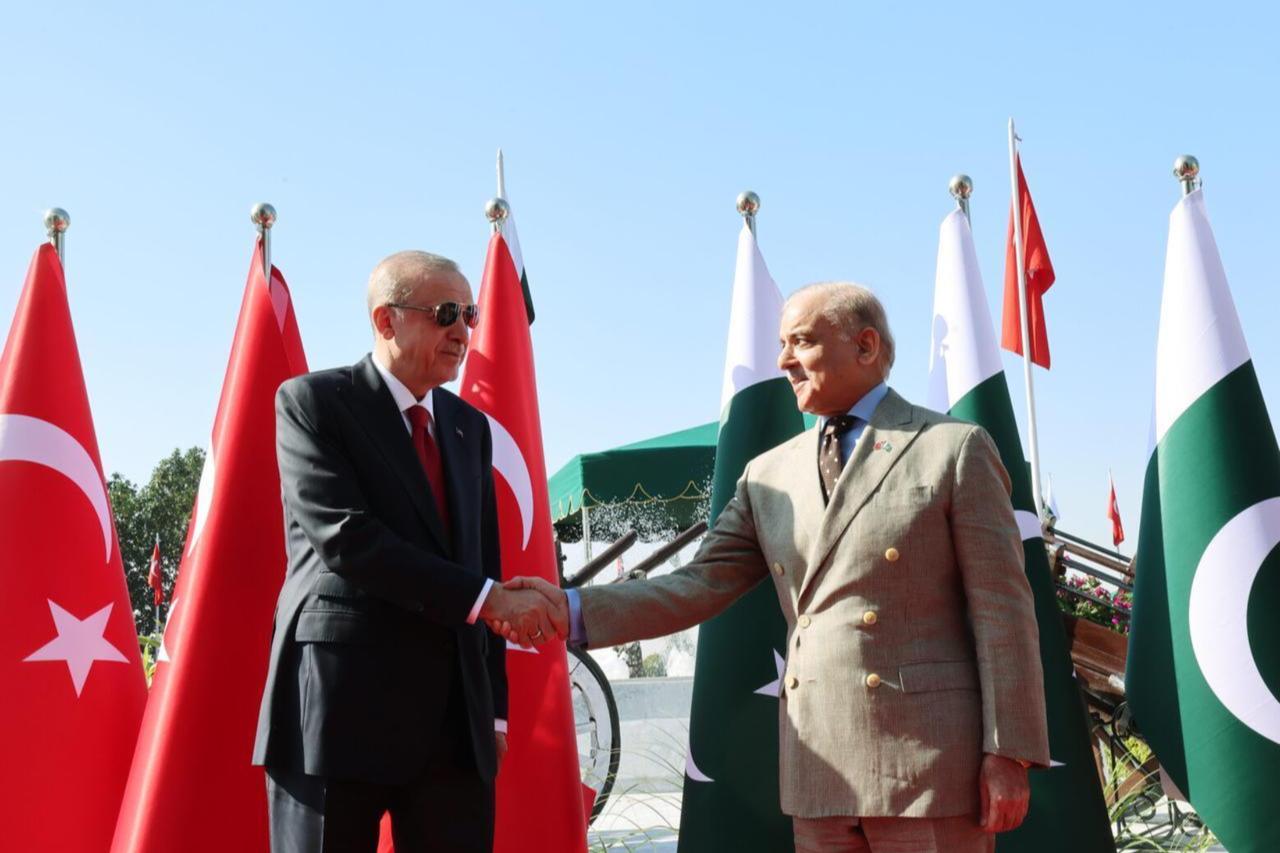
The freight train service from Islamabad to Istanbul via Tehran is scheduled to resume starting Dec. 31. First launched over 16 years ago as a trial, the route was suspended due to poor management and frequent delays.
The relaunch of the train service aims to reduce previous delays in shipments, tackle transport challenges and boost cargo capacity across the region.
Foreign Minister Hakan Fidan also emphasized the importance of developing joint infrastructure at the meeting, saying: "Türkiye is ready to share its experiences in the field of rail transportation and the localization of related technologies with its regional partners."
Administrative delays, lack of communication, service quality concerns, and destruction of the already frail infrastructure in Pakistan due to the severity of floods were all factors that led to the suspension of these rail services.
In December 2021, an attempt was made to revive the freight services between Türkiye and Pakistan. The service continued until August 2022 and was eventually halted until further notice.
Officials claim that the relaunch is set to address as well as overcome these previous delays and hindrances to ensure a smooth railway process between the involved countries.
“We had initially aimed to restart the Islamabad-Tehran-Istanbul (ITI) service even earlier, but regional instability, particularly the ongoing conflict involving Israel, caused delays. Now, trade ministers are finalizing what goods will move between Pakistan and Türkiye, and we are targeting Dec. 31 for relaunch,” said Muhammad Hanif Abbasi, the Pakistan federal minister for railways, to reporters present at the Pakistan Railway Headquarters.

Extending over 2,000 kilometers (1242.7 miles), the rail connects Islamabad to Tehran over the Taftan border, before continuing along the North-South transport corridor. Cargo will interchange at Zahedan, Iran, due to the difference in rail gauges. The train will then continue its route by commuting through Central Asia, passing by Turkmenistan and Kazakhstan.
Extending nearly 8,000 kilometers, transit time is expected to be 20 to 25 days.
This initiative is crucial for enhancing Pakistan’s role as a transit hub between Central Asia and Eurasia. With the commencement of this freight route, a strong alliance and partnership will be established between Pakistan, Iran and Türkiye under the Economic Cooperation Organization (ECO) to boost trade. It will play a significant role in strengthening transport links, diplomatic and economic ties between the three nations.
Moreover, Pakistan can focus on exporting goods rather than importing. This can help stabilize the economic unrest and is expected to be beneficial for Pakistan, allowing them to cut back on loans.
In terms of sustainability, train freight is a long-term sustainable option in comparison to ferries and sea routes. The rail route is scheduled to have a transit period between 20 to 25 days in contrast to the sea route, which has a transit period of around 45 days.
Furthermore, reviving this rail route encourages focus and investment in rail lines and logistics, which will boost local economies and create more chances of employment in a country where unemployment is severely on the rise.
The establishment of this freight route will also bring about many economic and strategic benefits—not just for Pakistan, but also for Türkiye and Iran.
The railway is still developing and going through constant evolution. Although currently this initiative is only eligible for transporting cargo and freight, Turkish and Pakistani ministers aim to expand it into a humanitarian and tourist route in the future to boost tourism between the countries.
The revival of the Islamabad-Tehran-Istanbul rail link marks renewed regional cooperation and economic ambition among Pakistan, Iran and Türkiye, strengthening diplomatic ties and fostering closer relations among the three nations.